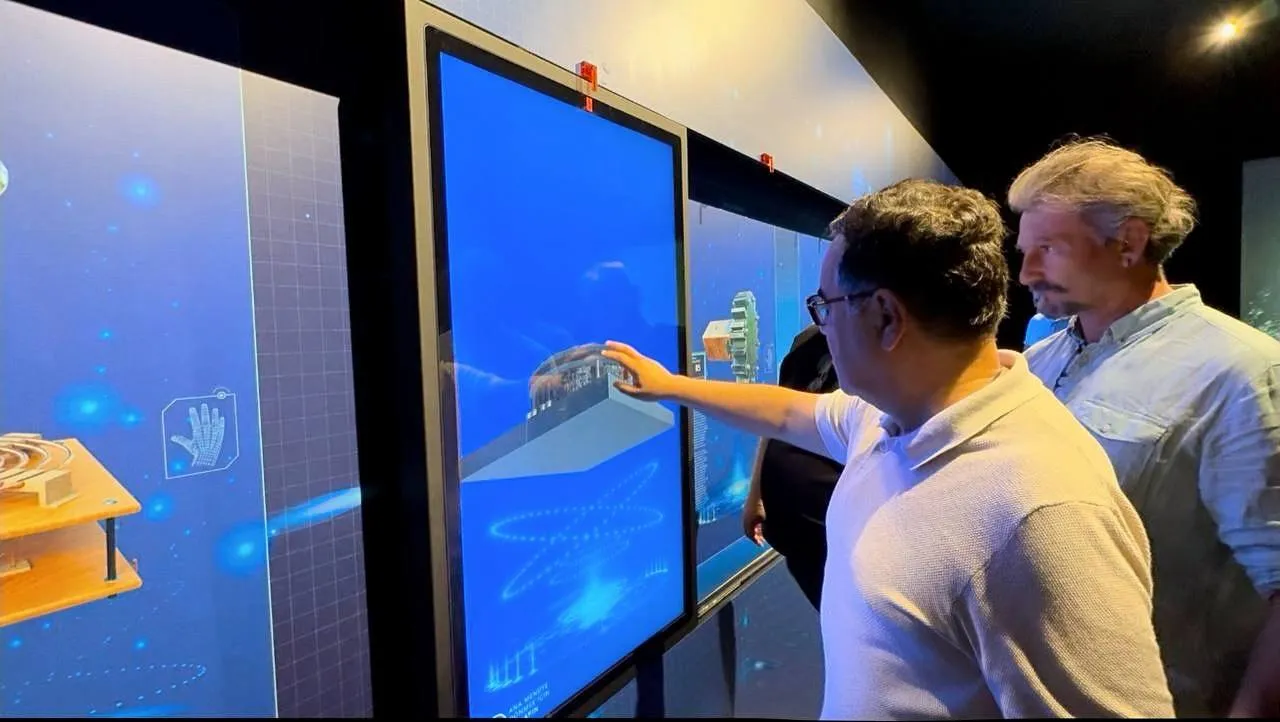On September 15, the delegation was introduced to a number of innovative museums in Istanbul, organized with the support of Outdoors Factory, a company specializing in the development of innovative solutions for cultural and museum institutions. The primary goal of the visit is to study best practices in implementing modern technologies in museum management and their impact on preserving cultural heritage.

Special attention was given to how modern technologies contribute to expanding access to cultural values and making them more accessible to a wider audience, including younger generations.
The delegation members visited the Şerefiye Cistern — one of the oldest underground structures from the Byzantine period, built during the reign of Emperor Theodosius II (408–450 AD) to store water in Constantinople. Today, it houses a unique attraction with 3D mapping, visually narrating the history of water supply. Another significant site was the open-air Miniature Museum, which showcases scaled-down replicas of famous landmarks such as the Hagia Sophia, the Blue Mosque, Topkapi Palace, the ancient city of Ephesus, and the Mausoleum at Halicarnassus. The museum offers visitors a brief tour of history and culture by presenting models of these iconic structures in one location.
The Deneyap Technology Atölyesi Interactive Museum is part of an educational program for children and youth, offering training in science and culture with a focus on the latest technologies, programming, and artificial intelligence.
Representatives of the Center for Islamic Civilization emphasized the importance of incorporating cutting-edge technologies into museum exhibits to preserve cultural heritage and create new forms of its presentation.
During discussions with museum directors and the head of Outdoors Factory, Sinan Turaman, topics regarding the use of technology to enhance visitor engagement and the development of interactive programs at the Center for Islamic Civilization in Uzbekistan were explored.
"The modern world demands new approaches to the preservation and promotion of cultural heritage. The main task of the Center for Islamic Civilization is to create content that combines rich meaning with advanced technology. Contemporary museums are not just repositories of artifacts; they are active platforms for interactive engagement with the audience. The introduction of such technologies into our cultural and humanitarian megaproject, initiated by our esteemed President Shavkat Mirziyoyev, opens new horizons for showcasing Islamic cultural heritage, making it accessible and interesting for all generations," said Firdavs Abdukhalikov. "This approach will be an important step towards preserving and developing centuries-old traditions through the lens of modern technologies."
The delegation's visit to Turkey opens new opportunities for cooperation between the Center for Islamic Civilization and Istanbul's museums, as well as for the exchange of experiences in innovation and culture.
"During the delegation's visit to Istanbul, a media event at IRCICA is planned, along with visits to major museums, the signing of memorandums, and the conclusion of new agreements that will contribute to enriching the content of the Center for Islamic Civilization in Uzbekistan," emphasized the Director of the Center.
